5 Myths About Glass Door Refrigeration
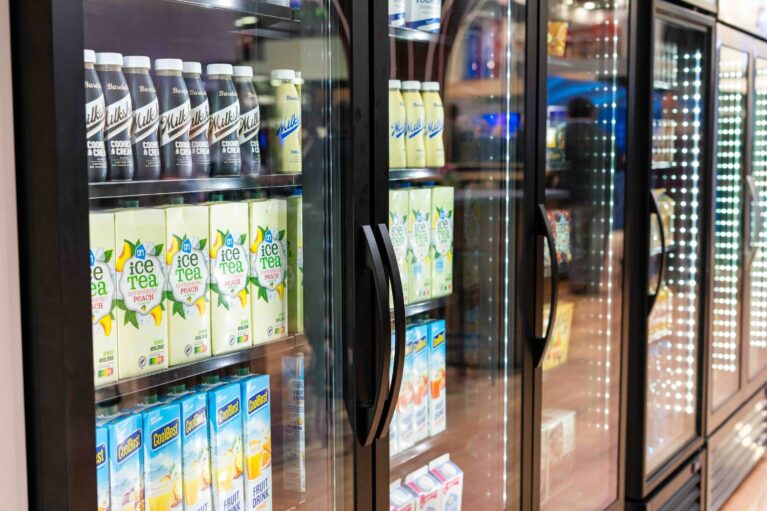
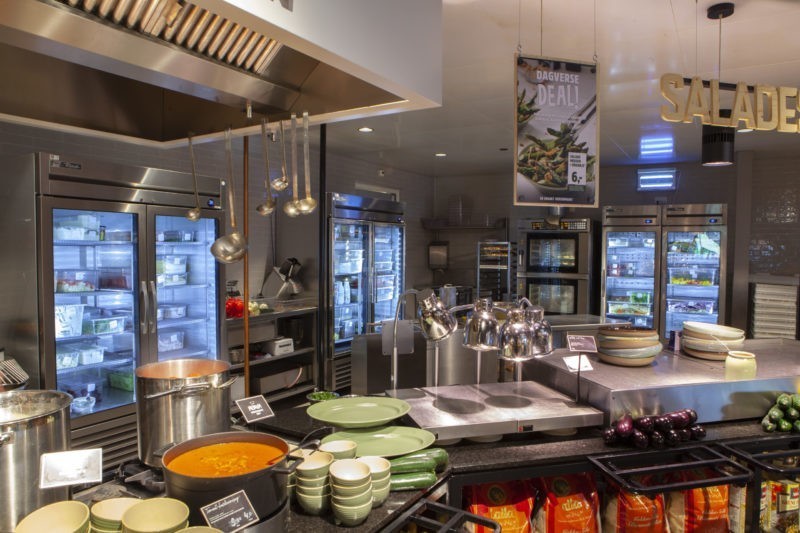
Your refrigeration needs to be powerful enough to meet the demands of a busy service while being reliable enough to perform when being put to the test.
So it’s understandable that choosing refrigeration is one of the most important decisions when designing your commercial kitchen space.
This is especially true in the post COVID world, as bars and restaurants continue to increase their offering while working to adapt their businesses. As economies recover from the pandemic, footfall can be unpredictable so you need kitchen equipment that can handle fluctuations in demand.
Having been pioneers of commercial refrigeration for over 75 years, True understands the needs of operators. So, to help make your decision easier, we’ve compiled this guide. Listing some of the top things to consider before making your decision.
Obviously, the main function of a refrigerator is to preserve your food and ingredients until needed. For this to happen, there needs to be enough space within the unit to store your produce and also allow sufficient airflow around the product to maintain the required temperature.
Therefore, it’s important to buy a refrigerator with enough capacity to cope with your busiest service.
Many professional refrigeration products are now required to have energy labels, similar to those found on some consumer electrics, with letter grades representing energy efficiency. These labels are also required to state the “Net Capacity” (usable space within the unit) in litres. For more information on understanding energy labels, see our guide here.
True Top Tip: Thankfully, True Refrigeration manufacture a wide array of products designed with every need in mind. From display, undercounter, upright and prep – regardless of kitchen footprint, we have a product to suit.
It’s also worth thinking about how your refrigerator will be used. This will determine whether you’ll need drawers, doors, glass doors, shelves, etc. And to help you make that decision, why not check our Doors Vs. Drawers blog?
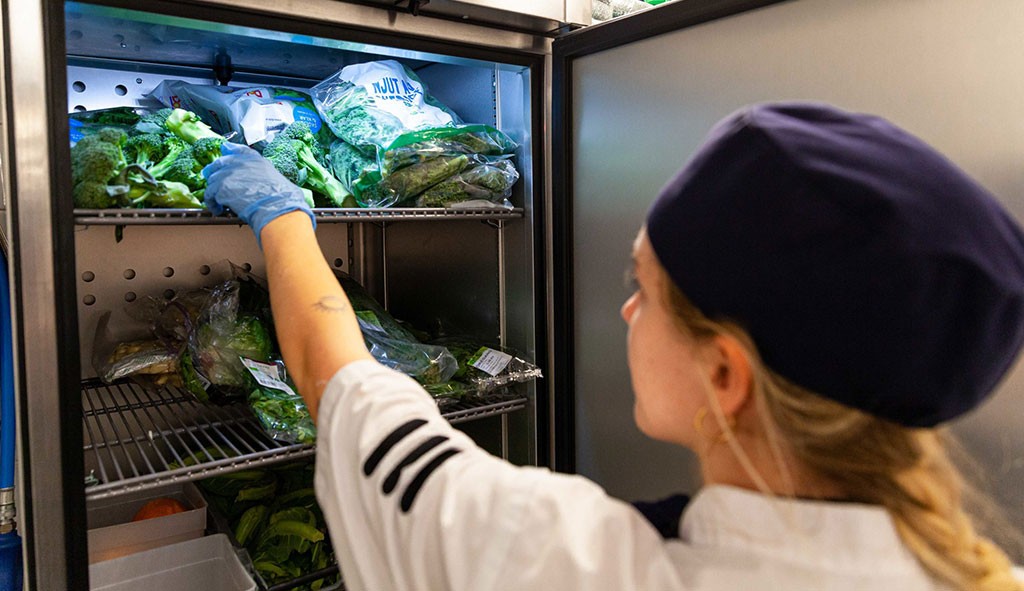
It’s important to consider the capacity of your refrigerator.
Another consideration which may overrule “how much refrigerated space do I need?” is “how much physical space do I have for a refrigerator?”. Upright units are usually the go-to choice for operators who require large-capacity storage, but deep counter and undercounter options can also be a solution, depending on the layout of your kitchen.
Think carefully about where your refrigerator will be placed, how it will be used, and how effectively staff can access it. Your refrigeration needs not only to fit but also be versatile and configured to suit service.
True Top Tip: A known trend is that kitchens are getting smaller and smaller, but restricted space doesn’t mean you have to restrict your menu or standards. We recently published a piece on how operators can Think BIG in smaller spaces, highlighting small footprint but still fully commercial-grade refrigeration products.
When customers buy products, they want to be reassured that they’re making the best decision possible. They need to know that what they spend their money on will last and that if it doesn’t, they can reach out to the company for support.
That’s where warranties come in.
Warranties exude confidence in a brand. After all, if a company is willing to provide free replacements over a set period, they’ve got to be confident that their product will last that long, if not longer, in order to make a profit.
By choosing equipment with a warranty, you’re protected against the risk of losing money and custom if your refrigerator suddenly breaks down.
Refrigerator downtime is detrimental to business at the best of times, but even more so now.
True Top Tip: There are many commercial refrigeration manufacturers in the industry, each offering many products. The standard inclusive warranty offered is two years parts and labor. True is the only manufacturer with the product confidence to offer a comprehensive 5 years parts & labour warranty across our entire range.
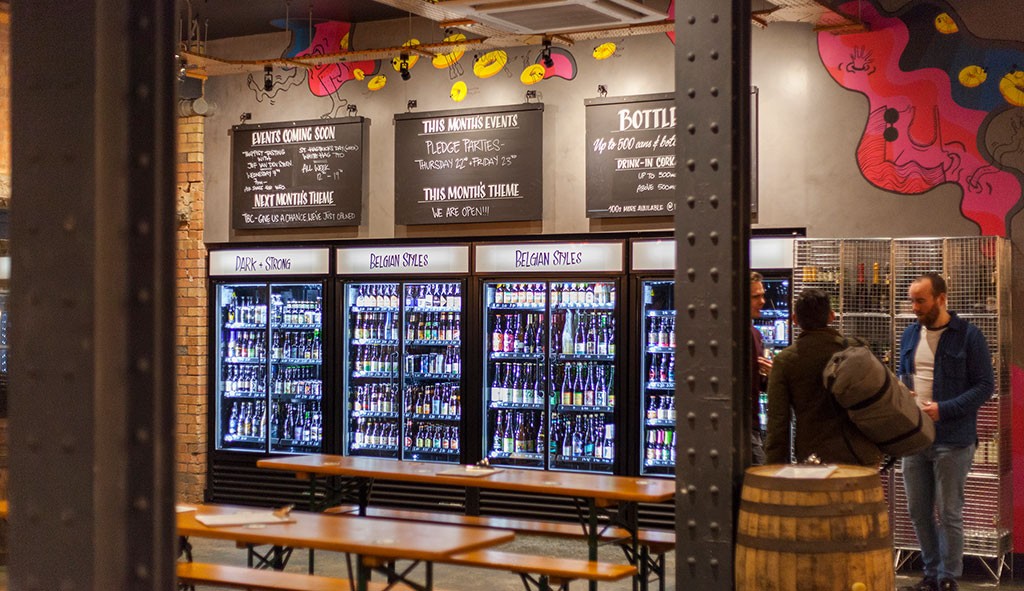
True Refrigeration products come with a comprehensive warranty
With an increasing focus on environmental performance, energy efficiency is an important, ongoing issue.
Refrigerators are one of the only pieces of equipment that run 24 hours a day, seven days a week, so the efficiency of refrigeration equipment plays a key role in the purchasing process.
Consider not only the acquisition cost of the equipment but the operating costs over the lifetime of the product, which can equate to many times the initial capital investment, costing more in the long run.
Energy labels, now required on many professional refrigeration products, allow operators to benchmark and compare running costs of similar products from different manufacturers. By choosing the latest, most energy-efficient equipment available, energy consumption can be considerably reduced.
Choosing energy-efficient equipment can help to drive down the day to day costs of running your business, freeing up spend to allocate to other areas of the business through turbulent times.
Energy efficiency isn’t only about saving money, it also saves the planet. Being portrayed as ‘eco-aware’ is important to corporate social responsibility and has a variety of benefits other than saving money – especially if your customers are particularly eco-friendly.
True’s hydrocarbon products harness the power of R290, a naturally occurring refrigerant, to produce highly energy-efficient and environmentally friendly refrigeration equipment which doesn’t sacrifice on performance.
True Top Tip: Ultimately, the higher the efficiency rating of a fridge, the cheaper it will be to operate, with savings which will accumulate over many years. As with any product, the cheapest available equipment is often of a lower quality and more prone to breakdown. Consider how essential reliable refrigeration is to your business. What would happen if your cabinet went down? For many operators, refrigeration equipment is a core investment of their business.
For more information about how to choose the most efficient model for your kitchen, check our blog about Climate Class.
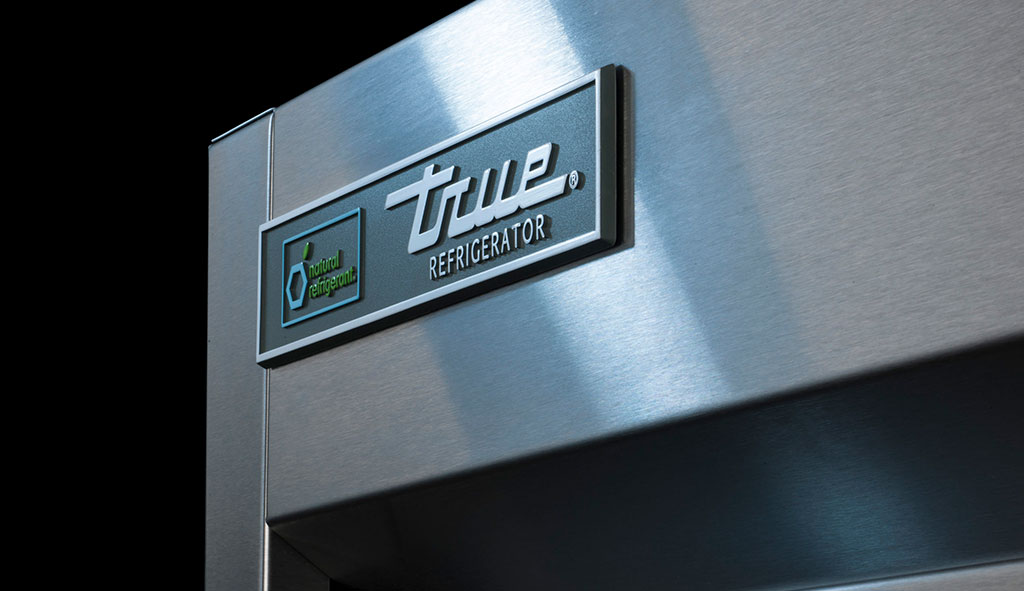
Always consider energy efficiency when costing kitchen equipment.
We understand the importance of choosing the right equipment for your business, especially in times of uncertainty. With nearly 75 years of experience and know-how, we’ve been creating equipment designed around customer needs for decades.
We can offer practical advice to help you adapt to the new demands of the hospitality industry and supply refrigeration that can take your kitchen space to the next level. For the latest, register for regular insights here.